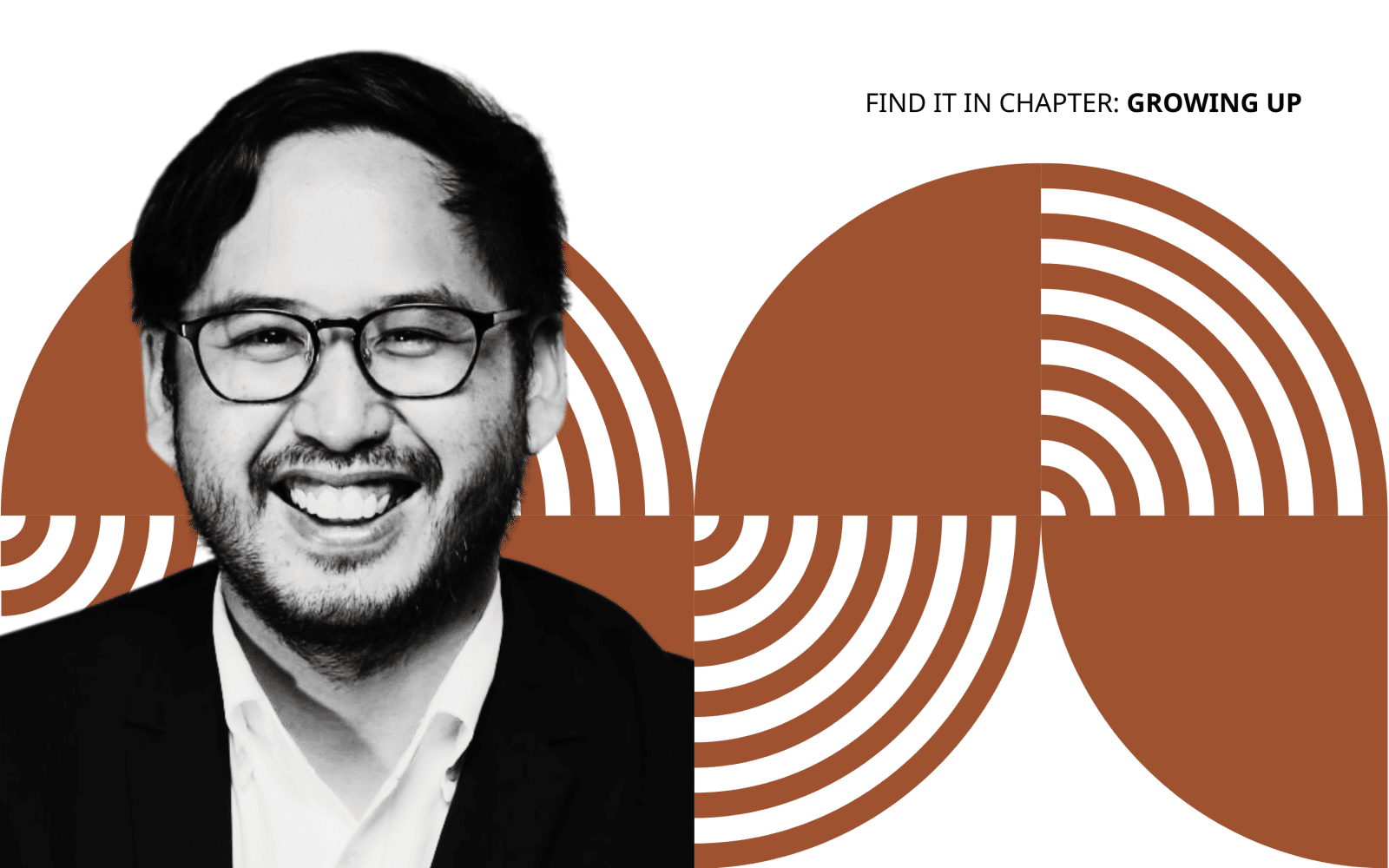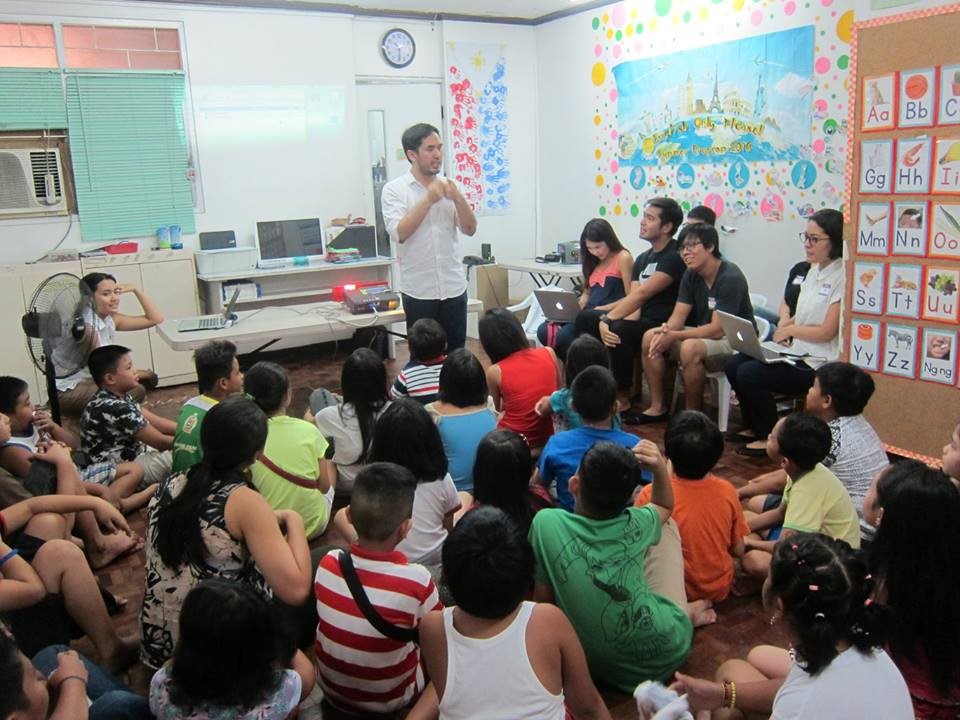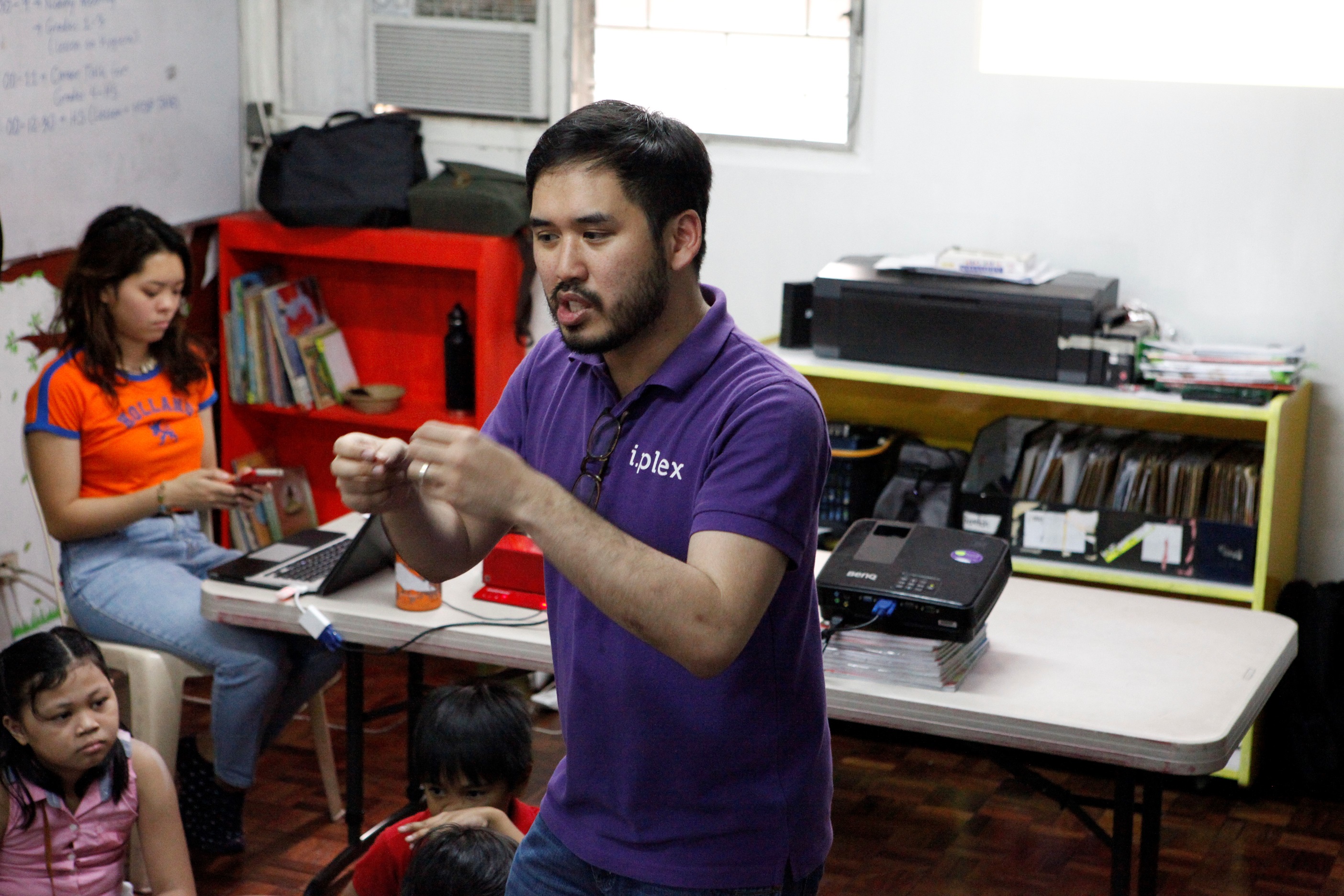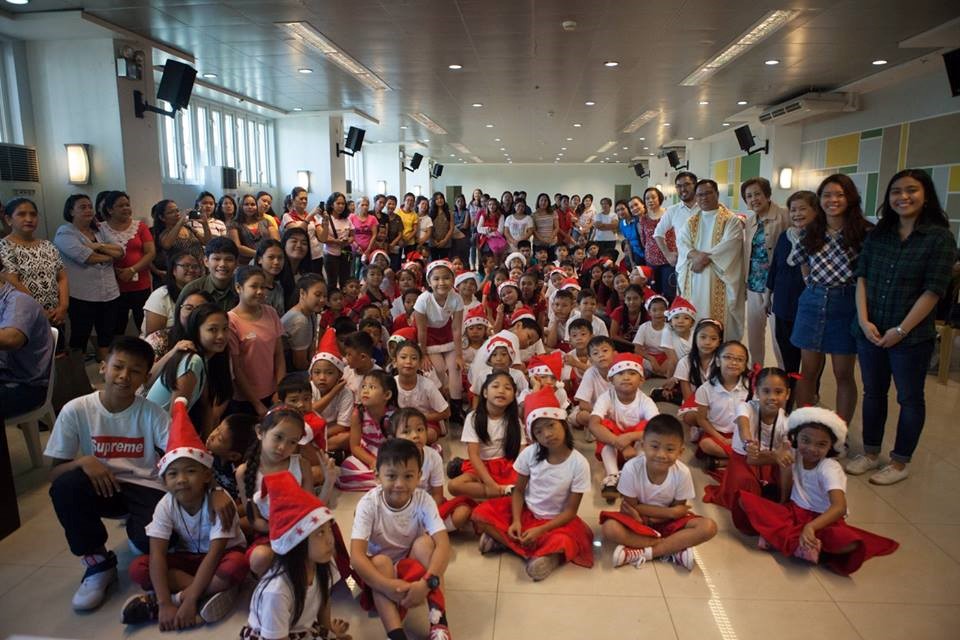Jaton Zulueta
President, AHA! Learning Center
Fellow project website: www.ahalearningcenter.com
How do you rescue whole generations from a failed educational system? The Philippines’ public schools rank last in the OECD in reading, and second to last in math. Jaton is helping millions of Filipino students succeed by empowering a volunteer network of parents, teachers, and community members to meet their remedial education needs, armed with locally adapted and fast-evolving approaches and tools.

THE NEW IDEA
With a centralized, bureaucratic school system failing the majority of its students and giving rise to a “lost generation” of Filipino youth, Jaton catalyzed a fast-growing volunteer network of parents, teachers, and communities to give students the support they need to succeed.
His organization trains volunteers to serve as remedial educators and mentors. It also established volunteer-based learning centers throughout the country, tailoring learning modules and programs to the specific needs of each local community.
Jaton’s movement is a national-scale success yet deals very personally and directly with millions of kids, teachers, parents, and neighbors. They have developed dozens of growing up/learning modules in the country’s various languages, adapted to the widely differing needs and realities of millions of young Filipinos. They have several different organizational thrusts, ranging from serving urban youth in the densest part of Manila to winning over schools and other institutions nationally.
Jaton and his network are constantly innovating in ways that will change the system and shift the pattern of failure, and their success is showing up in test results. For example, 83% of students who worked with Jaton’s network could pass a basic reading test, compared to just 31% of public school students generally.
THE PROBLEM
The Philippines public school system is in crisis, threatening to leave a whole generation of Filipino children behind. Millions of them can neither read nor do basic math. According to a 2019 OEDC report, four out of five are “low performers” lacking minimum proficiency in reading and math. Of 79 countries assessed, the Philippines ranked second to last in math and science and last in reading. It is the only country in Southeast Asia where literacy rates are dropping. Since the start of the pandemic, nearly three-quarters of public school students have dropped out.

As a result, many Filipino children haven’t acquired basic skills they need to thrive as adults. They aren’t equipped for the radically different jobs of the near future that we can foresee now, and they certainly aren’t developing the changemaker abilities they’ll need to navigate the new reality of accelerating change and interconnection.
It’s a systemic failure which the Philippines’ educational system hasn’t been able to fully confront, let alone correct. Prior to the OECD report, it underreported, misreported, or overlooked its performance problems. And going forward, it lacks an effective strategy to enable students to catch up. All its remedial education efforts are focused on young children, ignoring underperformance among older students as if they were already a lost cause. And the system has yet to address the underlying causes of these failures: A centralized, top-down bureaucracy and pervasive educational inequity.
Scholars and educators point out that economic, social, and cultural forces in the Philippines create fundamental imbalances in educational opportunity, quality, and resources. There are almost caste-like divisions between the privileged minority of Filipino students from affluent families enrolled in private schools (18%) and the vast majority in public schools (82%). Only 12% of public school students go on to attend university. It’s not surprising that many parents aspire to private schools as a way to ensure their children’s future. But that hurts the public schools even more, financially and in terms of diversity and support.
Parents and the community are the most important factors in raising children, yet they have no voice in the Philippines’ public schools. Parents are socially conditioned to focus on earning enough money to pay for private schooling and, beyond that, to leave teaching to the schools. Most parents of public school students come from poor backgrounds; many have low educational attainment themselves. As a result, they often lack the confidence to get involved in school affairs.
Adding to the problem, decision-making is centralized, and the school system is opaque to outside input. The Philippine Department of Education develops and hands down curricula, modules, and directives to which local schools rigidly adhere, bypassing the concerns and potential contributions of parents and the community.

The COVID-19 pandemic exacerbated these problems. Decisions made in Manila kept schools closed for as long as three years, even in areas with very low infection rates. Many children from low-income families lacked access to digital devices and internet connections and couldn’t keep up with online instruction. Since the onset of the pandemic, 72% of public school students dropped out, the ultimate indicator of systemic school failure.
Jaton perceived the fundamental problem -- that centralization and inequity were shutting parents and communities out of school affairs and driving systemic failures -- and designed a fundamental solution that taps the inherent power of parents and communities to lead change. It empowers them to intervene and give all public school students the support they need to succeed.
“Our goal is to eradicate illiteracy,” Jaton says. “Our country is worth working for. The difficult thing oftentimes is that it takes a lot of courage; 90 percent of it is showing up and connecting with the communities.”
THE STRATEGY
Jaton realized that to help a growing “lost generation” of older students who could neither read nor write required more than new school programs; it required a different paradigm that captured and valued the contributions of parents and communities and a shift in perspective to what he calls an “empathy-informed lens.”
His own empathetic lens comes from firsthand experience. He fell behind in the public schools himself and later volunteered to help other students catch up. Drawing on those experiences, Jaton founded Angels Here Abound (AHA) to help students aged 9 to 16 catch up to grade level and by empowering parents and communities to intervene. AHA trains parents, teachers, and community members in remedial education and its tools, and volunteer-run AHA Learning Centers offer after-school tutoring and online programs for students.
Working with AHA staff and volunteering in after-school programs, parents learn how they can complement teachers’ work by staying engaged in their child’s instruction and providing support at home. AHA trainings and programs were developed and honed over a decade of work with parents and public school teachers. Using a collaborative “beyond school walls” approach, they connect parents and community members into a citizen network of learning resources for students.
AHA’s programs are volunteer-based and designed to be cost-effective, time-efficient, and flexible and adaptable for different grade levels, users, and local conditions. Adaptability is key since the circumstances of low-income students, families, and communities vary widely and can change suddenly. The AHA network has an ethos of learning by doing and supporting one another through struggles. In place of the old attitude of deference to the school system’s decisions and acquiescence in its failures, AHA fosters a new mindset that any student can learn and thrive with the right learning support, and that any parent or community member can provide that support.
"AHA! prides itself in its advanced, private school level materials that can future-proof public school kids and make them globally competitive. No matter their social status, students are taught they all have the right to dream big.”
ABS CBN News
It’s a powerful idea that is catching on and changing educational outcomes. There are now AHA Learning Centers across the country. Together with its partners, AHA has trained over 180,000 parents and teachers and reached three million students. 85% of them have seen improvements in their grades. 86% of parents working with AHA report feeling more confident teaching their children. 95% reported improvements in their child’s behavior. Students working with AHA participants scored markedly higher on pre- and post-literacy and numeracy tests. For example, those who could read at least a paragraph after working with AHA trainees jumped from 31% to 83%; those who could correctly divide a two-digit number with a remaining value jumped from 3% to 55%. By accessing AHA’s programs, older students previously considered either incapable of getting up to grade level or not worth the intensive investment required could catch up in one to two years at low cost.
When the COVID-19 pandemic struck and schools closed, it risked erasing this progress and leaving yet more students behind. Lockdowns and virtual instruction put families with limited access to technology at a greater disadvantage. Jayton jumped in and tapped the AHA network to find ways to extend support to them. Within a month, a novel solution emerged: Text-based learning modules students and parents could use at home, delivered via SMS texting, Facebook Messenger, and radio. AHA was the first organization in the country to pioneer this approach, which other organizations and the government of the Philippines later adopted.
Hundreds of citizens in the AHA network mobilized and collaborated to build out the system, developing over 500 different text-based modules in all the major languages of the Philippines, each one specially adapted for local conditions. They also trained teachers and parents on them, for example how to use Facebook Messenger to run basic virtual classes, or to check if students needed help with take-home lessons. AHA worked with the Department of Education and Department of Health to adopt the modules, quickly reaching millions of students and bringing AHA national recognition.
To scale up, AHA identified parent networks and teacher-champions in all regions of the Philippines, working with at least one school division in each region. AHA trainings and after-school programs are delivered via three different, complementary tiers:
AHA Plus Community works to train more parents, teachers, and adopting schools, collaborating with volunteers and partners across the country to co-design over 500 localized learning modules and programs. They teach basic literacy and social-emotional skills, reflecting students’ local reality and tapping into traditional Filipino values such as duty to family and care for one’s parents and elders. By identifying and supporting teachers who want to champion their use, AHA’s goal is to get these modules and programs into 26,000 schools, which is the tipping point for adopting them systemwide.

AHA Prime is a specially designed after-school program for disenfranchised urban youth in Manila and elsewhere who cope with trauma and struggle to stay in school. It teaches them basic literacy skills and social-emotional tools for building and sustaining relationships, so they can receive ongoing learning support from community members outside of school. The programs stays engaged with these students all the way through college.
AHA Mainstream is a series of playbooks for school districts, organizations, and foundations, to help AHA trainings and programs get incorporated into curricula and local ordinances. To that end, AHA is working with its national network of parents and teachers, six regional education departments, eleven school districts in the Manila region, and aligned organizations such as the San Miguel Foundation, the Gokongwei Brothers Foundation, the Yellow Boat of Hope Foundation, and Teach Anywhere.
AHA is also working to inform and shift education policy at the national level. Whereas past failures of the public school system went unreported, underreported, or misreported, AHA programs and metrics can supply missing data and help set standards for remediation which the Department of Education can use to create more effective interventions. That way not only are parents and communities no longer marginalized and ignored by the education system, they’re central to its success.
"Zulueta has a lot of plans for the future of AHA!!. But for now, he is focused on reaching more provinces and communities to make sure that change is felt nationwide. Being an Ashoka fellow, he says, “doesn’t just validate what we do but emboldens us to do even better,” he says.”
Inquirer.net
THE PERSON
Growing up in the Philippines, Jaton struggled in public school, especially in math. Labeled a slow learner, he took remedial classes over the summer to catch up. So, he understood viscerally and empathized with the experience of students who fall behind. But as it turned out, Jaton wasn’t slow at all – on the contrary.
As a teenager, his mother, a faith-based and community-minded business owner, encouraged him to volunteer with her church group to teach at a graveyard where street kids used to live. Once he began teaching, he realized he wasn’t bad at math, he just hadn’t been taught in a way that allowed him to get good at it. Hooked on showing other kids how to do it, he kept teaching in the graveyard through his college years.
Inspired by this out-of-the-box teaching experience, in 2009, at age 19, Jaton founded the first AHA Learning Center as a weekend tutorial program in the most populous district in Manila. But it went far beyond ordinary tutoring. It was conducted by volunteers, including parents and other family members. It committed to following students individually and continuing to work with them to make a difference in their educational outcomes. And it gave the volunteers the empowering experience of making that difference themselves.
In 2019, Jaton devoted himself full-time to AHA, expanding it through creative partnerships with schools, government agencies, private-sector CSR programs, and other citizen-sector organizations. AHA Learning Centers have spread across the Philippines, bring more parents, teachers, and volunteers, and ideas into the movement.
"Jaton Zulueta founded AHA Learning Center, a free after-school program providing low-income Filipino students “with an ecosystem of opportunity and support” to supplement their public education. In response to Covid-19, AHA has brought virtual lessons to over a million students and trained more than 50,000 public school teachers. Honored as an Obama Foundation Leader in 2019, Jaton has also established a coding training program."
Tatler